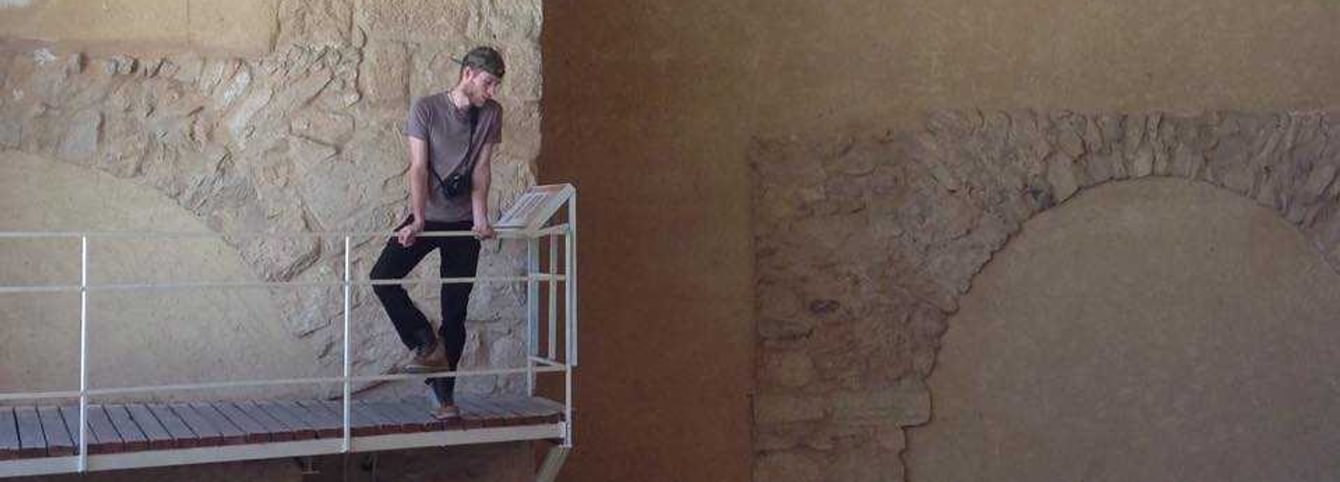Patrick Harned
Patrick Harned is an alumnus of the 2015 CLS Arabic program in Madaba, Jordan. He is a first year graduate student in Global Policy Studies and Middle Eastern Studies at the Lyndon B. Johnson School of Public Policy, a school of the University of Texas at Austin. He volunteers as an ESL teacher. In addition to Arabic, he has studied Classical Greek, Latin, French, German, and Japanese; he’s currently teaching himself Spanish and Vietnamese.
Why Arabic?
I chose Arabic because I wanted to challenge my own perceptions and understanding of the Arabic-speaking world. I’m now pursuing graduate study in Global Policy and Middle Eastern Studies, and I plan on living in the Middle East – potentially Jordan again – for a period of time after I graduate. I’m interested in working in immigrant and refugee relief.
Extended family
While I was in Jordan, I lived in the “bait al3ila,” or “family house.” Jordanians have large extended families and place a lot of importance on family, so the designation of one household as the “family house” means those doors are always open to friends and family. Every day was a long series of visits, from neighbors in the morning to cousins and in-laws in the afternoon and evening. Jordanians are legendary for their hospitality, and they spared no expense in accommodating me; I was even invited to a family wedding during my stay. There is a stark contrast between the Jordanian love of social life and relationships and the American focus on the individual. Because of this, I have deeper sense of intimacy and appreciation with friends in Jordan than with my American friends.
Call me Asad
Whenever I met people in Jordan, they would say, “happy to meet you,” to which the response is supposed to be, in Arabic, “wa Ana As3ad” – “and I am happier.” However, I sometimes mispronounced this expression and said “Ana Asad,” which means “I’m Asad” (or “my name is Asad”). For some reason, a particular member of my host family found this hilarious, and proceeded to bait me into saying this expression in front of strangers. I never understood what was quite so funny…
On Arabic proverbs
My favorite Arabic saying is اللي استحوا ، ماتوا (“illi istahoo, matoo”) – “dead are the abashed.” This expression refers to people who are too shy to pursue their desires and consequently miss out on good opportunities. I also became familiar with the Palestinian expression “la mahub wa la sahba illa b3ad al 3adia.” While I was in Jordan, I was invited to the wedding of my host family’s niece; their extended family drove in from Palestine and stayed at the house, and for a few weeks the household was overflowing with guests organizing and planning the wedding, interrupted by loud and violent arguments. (The expression translates as “there is no love or friendship except after enmity.”)
If you had one day in Jordan…
Visit the Roman Forum in downtown Amman!
Words of wisdom
Take your language learning outside the classroom.



